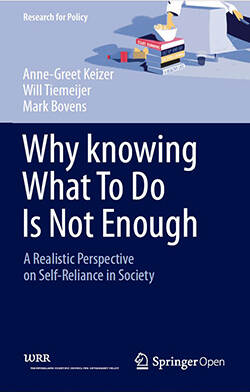Podcast about behavioural science and capacity to act
Discover in the latest podcast-episode (#13) of PESPod how the Dutch Public Employment Service (PES) has achieved tangible benefits by adapting its services and communication to people’s natural ‘capacity to act’. In this episode host David Poyser speaks to Anne-Greet Keizer, Research Fellow at the Netherlands Scientific Council for Government Policy (WRR) and Mike Keesman from the Dutch PES (UWV) on how a WRR report on behavioural science has helped to improve PES performance.
Anne-Greet Keizer explains how the WRR’s research highlighted the importance of understanding the “difference between what people are expected to do and what they are actually capable of.” This is not an issue of motivation or willingness, nor just a concern for vulnerable groups - anyone can find themselves unable to take appropriate action in their best interests at different moments.
About Why knowing what to do is not enough. A realistic perspective on self-reliance
In today’s society, people are expected to take responsibility for their own lives and be self-reliant. This is no easy feat. They must be on constant high alert in areas of life such as health, work and personal finances and, if things threaten to go awry, take appropriate action without further ado. This book presents a more realistic perspective on self-reliance, and shows government officials how to design rules and institutions that allow for the natural limitations in people’s ‘capacity to act’.

